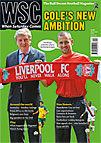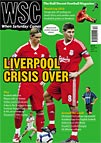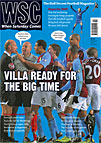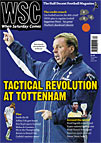 Tottenham Hotspur could play an important role in local redevelopment after the London riots but it’s not clear where their priorities lie, according to Alan Fisher
Tottenham Hotspur could play an important role in local redevelopment after the London riots but it’s not clear where their priorities lie, according to Alan Fisher
The spark that ignited urban disturbances across the country, Tottenham suffered more damage than any other area. As well as extensive destruction of property, up to 200 people were made homeless and a leisure centre provided emergency shelter, food and clothing for families who lost everything. As the rebuilding begins, the role of a football club in the community will be tested as never before.
Tottenham is an area of considerable social deprivation. Tottenham Hotspur, regularly in the world’s top 15 clubs in terms of annual income, falls within a ward that is among the five per cent most deprived in England, while in Tottenham as a whole 80.3 per cent of children live in low-income homes.
The burnt-out Carpetright store heavily featured on the news is a few hundred yards from the ground but the club remained unscathed apart from some damage to the ticket office. Tottenham High Road, the main route to the ground by car and public transport, remained closed for several days, causing the postponement of the season’s opening fixture against Everton.
It was natural that local people and politicians should look to the club as a major partner in the future. Victoria Hart lives on the High Road and spent a long Saturday night reassuring a frightened and bewildered six-year-old as the troubles raged outside her window.
“We all feel very damaged by the riots and the destruction around us. We want to retain a pride in Tottenham but it’s difficult when the press perception seems to be of a locality where a riot was ‘just bound’ to happen. I hope the football club, being one of the really identifiable places on the High Road, can help us to rebuild. And I mean that more emotionally than financially.”
Early signs were positive. Spurs chairman Daniel Levy swiftly committed the club to “help with both the physical clean-up of our area and the longer term rebuilding of community spirit”. The fans responded too. Many travelled to Tottenham on their spare Saturday to labour alongside local people as the clean-up continued, while an internet appeal of behalf of 89-year-old barber Aaron Biber raised over £35,000. The refurbished shop was opened by Peter Crouch, looking decidedly nervous as Biber hovered behind him, clippers at the ready.
Otherwise, it has been left to Benoît Assou-Ekotto to respond on behalf of the players. The full-back is fast attaining cult status among Spurs fans for his dashing performances and grounded attitude. He travels by Tube, for goodness’ sake. Conscious of his own impoverished upbringing, he readily grasped both the dismay of local people and their resolve to put matters right. It remains to be seen if Spurs are similarly in close touch with the needs of the community.
Like many clubs, Spurs are proud of their outreach work. In 2007 they invested £4.5 million in a foundation working in sport, education and with the unemployed. Yet the local impact is questionable. Mark Perryman, co-founder of Philosophy Football and a season-ticket holder, trenchantly dismisses the club’s performance in the 25 years he’s lived locally: “The club makes the name of the borough known worldwide but otherwise I don’t see what it gives the area. Away from the ground itself the club’s presence physically is almost non-existent and it’s painfully obvious how disconnected the club is. It’s just not a significant institution in the community in which I live.”
His words apply to many Premier League clubs. Spurs’ popular soccer coaching schools reach out to the relatively affluent suburban fanbases in Hertfordshire and Essex rather than the estates around White Hart Lane. Also, some of the highest ticket prices in the country mean locals cannot afford to watch their team. “London clubs aren’t London clubs, they’re Home Counties clubs. Those who can afford season-tickets don’t live in inner London. There may have been a connection a generation or so ago, not now,” says Perryman.
At the same time as he talks about increased community engagement, Levy is actively exploring a move away from Tottenham entirely. Economics overrides history or community responsibility when it comes to the board’s preferred option of a new ground to replace the venerable but creaking White Hart Lane on the Olympic Park site. This which will be cheaper to build and generate greater income from non-football activity. Undeterred by a ruling in favour of West Ham, they are taking it to a costly judicial review later this year.
The alternative is a 56,250-seat stadium next door to the current ground, plus housing, a hotel, supermarket and, crucially, improved transport links to reinvigorate the area. Supporters groups such as We Are N17 campaign to stay in Tottenham but the project now takes on a significance greater than merely preserving the club’s heritage. It’s an ill wind, and the recent problems will strengthen both the political pressure to stay put and the case for substantial regional growth fund and enterprise zone bids to boost business and cover a proportion of Spurs’ costs.
Talking to residents, the club is clearly part of their lives and has the potential to act as a focus for their determination to rebuild relationships as well as bricks and mortar. The stadium project, important though it may be, is not in itself enough. Spurs must reach out and engage with a willing community of which it is a part. As Victoria Hart says: “We always needed the club but we need it a whole lot more now.”
From WSC 296 October 2011



